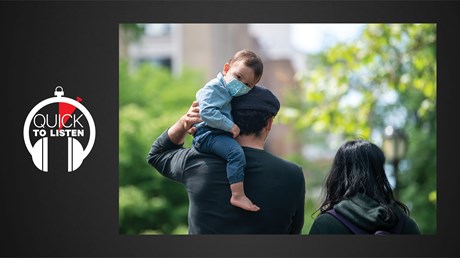Rick Warren Mastered the Formula for Suburban Church Growth
Why the “Purpose Driven” pastor connected with Southern Californians.
After more than 40 years leading Saddleback Church, Rick Warren has announced his retirement.
“This is not the end of my ministry,” Warren told his congregants on Sunday….
Why Chinese Christians Don’t Talk About Family Planning
Will the government’s new three-children policy change the church’s discussion around children?
China has expanded the number of children married couples can have to three. Home to nearly 1.4 billion people—or more than one billion more people th…
Homelessness Is Vexing American Cities. Do Christians Have a Solution?
How the church should help the rising number of people sleeping on the streets.
Across the country, American cities are unsuccessfully grappling with how best to address homelessness. This month, Austin criminalized sitting, lying, or camping in public…
Why Having Babies Is Controversial in 2021
How the church can have a better conversation about the falling fertility rate and society’s changing expectations for mothers.

Last year, the US birthrate experienced its largest single-year drop in nearly 50 years. For years, America’s 2.1 fertility rate made it an outlier to other developed countries. But for the last decade, the number had begun trending downwards, plummeting to last year’s figure of 1.6 children per woman.
These numbers entered the news the same week the New York Times published an essay by columnist Elizabeth Bruenig, “I Became a Mother at 25, and I’m Not Sorry I Didn’t Wait.” Many warmly received and shared the piece, which explores the author’s experience of learning she was pregnant and the many factors that have caused millennial women to delay children including economic concerns, higher education, race, and geography. But for others, it struck a nerve.
One NYT commenter wrote, “There are few things more irresponsible than bringing a child into the world in 2021. I know it’s difficult to reject the incredible social and cultural pressure that encourages us to reproduce. The easiest thing to do will always be to have children. But a good rule of thumb is that the easiest option– the one our current paradigm encourages– generally causes the most damage and suffering.”
On Twitter, Jill Filipovic wrote, “I would really love to read more essays and op/eds from women (and men, too) who regret having children as early as they did, regret having as many as they did, or regret having children at all. There’s not much about motherhood that remains publicly unexplored, but that does.”
Rebecca McLaughlin is the author of Confronting Christianity, named Christianity Today’s 2020 Beautiful Orthodoxy Book of the Year, and it’s follow-up edition for youth, …
Should Christians Cheer Biden’s Plan for Families?
A new proposal would mandate paid parental leave, provide universal pre-K, and help with childcare costs for low-income families.

Last week, President Biden addressed Congress to stump for his latest proposal: The American Families Plan. If passed as is, the initiative would do the following:
-Provide universal preschool for all three and four-year-olds
-Offer two years of free community college to young adults
-Cover childcare costs for families in poverty.
-Set a $15 minimum wage for early childcare workers.
-Mandate 12 weeks of paid parental, family and personal illness leave.
-Make a summer food program serving children from low-income families permanent
This week on Quick to Listen, we wanted to dive deeper into Biden’s proposal. What is it trying to address? Who is it trying to serve? What changes should Christians see as wins for their own families and for their neighbors? And where should they push back or critique?
Rachel Anderson is a resident fellow with the Center for Public Justice, leading the Families Valued project, where her work focuses on work and family policy and faith-based civic engagement. Anderson joined global media manager Morgan Lee and executive editor Ted Olsen to discuss why paid family leave has not been embraced in America, why so many churches are involved in early childhood education, and why family policy critics often take contrary positions on parents working or not.
What is Quick to Listen? Read more
Rate Quick to Listen on Apple Podcasts
Follow the podcast on Twitter
Follow our hosts on Twitter: Morgan Lee and Ted Olsen
Music by Sweeps
Quick to Listen is produced by Morgan Lee and Matt Linder
The transcript is edited by Yvonne Su and Bunmi Ishola
Highlights from Quick to Listen #263
Can you tell us a little bit more about the types of families that Biden’s proposal is trying to reach?
Rachel Anderson: First, …




